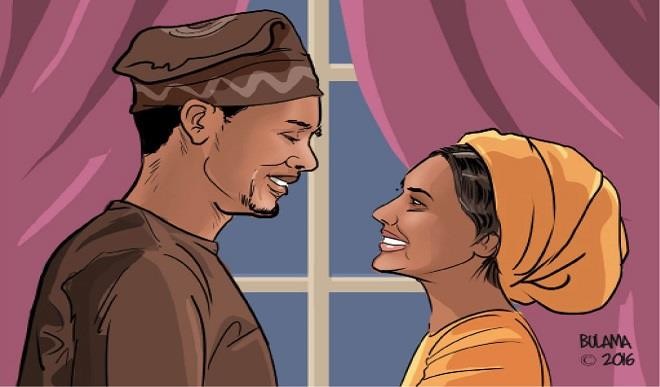Should language be a barrier in marriage?
Recently, families involved in inter-tribal marriages are being confronted with the crisis of which language should be spoken in the home. Now, many would ask what the whole drama about tribal/language difference is. Is it bad to speak your language to your kids especially when you’re not from the same tribe as your partner? A […]


Recently, families involved in inter-tribal marriages are being confronted with the crisis of which language should be spoken in the home. Now, many would ask what the whole drama about tribal/language difference is. Is it bad to speak your language to your kids especially when you’re not from the same tribe as your partner? A mother speaking her dialect to the children is common in every home, but is it enough reason to brew crisis between couples? In most cases, husbands have gone as far as banning their wives from speaking any other dialect except theirs (husbands) to the children.
Mr. Kunle Adeniji, 42-year-old civil servant, asks “Will banning the language mean that the wife has no right to speak her language in her matrimonial home? It’s inevitable that she speaks it to her children; I mean it is a mother’s instinct to speak her language to her children. It comes naturally. How is it bad, if a mother speaks her language with her children? My question is: why would anyone marry outside his tribe in the first place if he really wanted his children to be taught his language?
Olabode Adedamola Taibat, 39-year-old engineer, says “It’s not a bad thing for a mother to speak in her dialect to the children. A husband asking his wife not to speak her language to the children is going to the extreme. Did he think it was going to be easy getting married to someone from a different tribe and culture and still expect her to learn his language before she could speak to their children? He needs to be realistic; any spouse desiring that simply isn’t living in reality.”
Mariah Abdullahi, 40-year-old medical practitioner, says language is one of the major factors we need to take into consideration in the family. “In a situation where we have our languages going extinct in the society, he should be glad that his wife is at least speaking her language to help preserve the dignity of the family name. Did he expect her to speak a language she doesn’t understand herself to the children? What is wrong if they both speak their languages to their children? The rate at which things are going in the country and the world in general, it is all for the good of the children as they would be at an advantage if they can understand and speak more than one or two languages. It shouldn’t be generating problems in the house; some people will pay to have a partner who can speak more than one language to their children.”
Mr. Taiwo Owolabi, 39-year-old teacher, says a child speaking more than one language can be impacted positively. “I wish I could speak my mum and dad’s languages fluently; it has a lot of positive influence on a child’s future. What man would think that immediately he marries a woman from a different tribe, she would stop speaking her language automatically? What we really need is love and if we start by saying some languages can’t be spoken in our homes, then where is the love? Imagine you speak English, Yoruba, Igbo and Hausa; wouldn’t that be great especially in the face of trying times in Nigeria today?”
No language is inferior, and it will be a great privilege if the child can understand one or more languages. There is nothing wrong in learning both of the parent’s languages and then a general language, probably English.
In Yoruba language, there is a proverb that says ‘kini ile baba ka ma ni tiya’, meaning a child belongs to both parents and has equal share in the origin of both parents. Languages are important and none should be seen as being inferior, not by the mother, father or anyone in the society.
